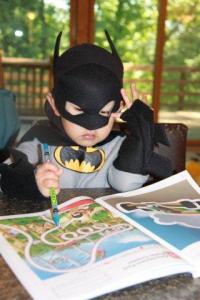Forehead pressed against the cold window, I waited impatiently for the plane to descend through thick clouds. My breath held and released only when Turnagain Arm welcomed me “home” with a ripple of its silky waters.
The jagged gray mountain peaks that I loved were already coated with termination dust, hinting at my favorite time of the year. As the wheels touched ground, I sighed, the kind you release when you’re coming home after a long business trip, even though I was now a visitor with only ten days to teach a class for 49 Writers, wrap up loose ends with various jobs, and put our house in Eagle River on the market.
According to the Oxford English Dictionary, home is “a refuge, a sanctuary a place or region to which one naturally belongs or where one feels at ease; a place where something flourishes.”
A few moments with my feet on Alaskan soil and I felt as if I was wrapped in the softest robe, sipping a cup of tea. Physically, I am extremely comfortable. My metabolism is such that in places like D.C., even in an air-conditioned environment, Thomas catches me climbing into refrigerators or freezers. Cold temperatures calm me down so that I am more willing to let things be. Emotionally, I flourish in nature. A placid body of water, so still that it reflects the drifting clouds in the sky, inspires poetry, while manicured lawns, office buildings, and traffic jams put me on edge. Shrink-wrapped in pantyhose, high heels, and a tight suit, I’m not only uncomfortable but I feel judged.
Escaping the rat race of job titles, houses, and cars, is one of the main reasons why my friends swear they will never leave Alaska. Here, we can smoke salmon in our pajamas on our front lawn. Or wear Bogs and Carhartts to work. Or crash into a friend’s truck and simply be forgiven with the words, “Don’t worry about it. I’ve done worse things to this piece of shit.” For many of us, it’s hard to find another place in the world that makes you feel so much at ease.
For all of these reasons, Alaska will always be my “home,” which is why it was difficult for me to accept that eventually I would have to write a “last post” for KTD.
The Oxford English Dictionary also defines “home” as “the family or social unit occupying a house.” No matter how much I might savor a long soak in a hot tub beneath skies lit by the Northern Lights and a full moon, my mind lingered in Vienna, Virginia, worrying about whether Thomas remembered to brush the kids’ teeth or whether anyone made him breakfast.
My phone conversations with my family went like this:
“Hi, it’s Kyra Oh. Mommee, I didn’t miss the bus today. Mommee, I love you. I miss you. When you come home, I have a surprise for you,” Kyra speaks so fast that I can’t get a word in. “Come home soon, okay? Here, Ethan talk to Mommee.”
“Wait!” I say, but now I can hear my son walking around with Thomas’ iPhone. “Mommee? Mommee? Mommee?” his voice reminds me of the pitiful cry of a hungry baby bird waiting for his mom to feed him.
“Ethan? I love you!” I say, but my iPhone goes silent. The connection is still running.
“Hello? Ethan? Thomas? I think Ethan hit the mute button.” I pace back and forth in frustration.
Finally, a child’s voice comes through, “Are you in Alaska?” Now, I understand why my relatives can never tell the difference between Kyra and Ethan on the phone. Their voices are virtually indistinguishable, but as the mother, shouldn’t I be able to tell?
So I try to be quiet and just listen. Once the words “I’m mad” and “Spiderman” and “Batman” surface, I sigh with relief. It’s Ethan.
Finally, I decipher a full sentence. “Mommee, why are you not home?” Ethan demands. Then the connection drops, probably because he hit the “end” button.
The longer I stayed in Alaska, my refuge and sanctuary, without my family, the more I felt uneasy. Soon, I heard myself saying that I couldn’t wait to go “home.” I scrolled through photos of my kids on my iPhone and counted down the hours to lying in bed with a kid tucked under each arm and a book propped on my belly.
When I did reunite with my family in the D.C. area, I filled their tummies with smoked salmon and blueberry jam made by my Alaskan friends. The kids insisted that I read Kiska and Kobuk every night as they snuggled with their Kiska and Kobuk huskies. At the center of our dining table, I filled a vase with dry reed grass I picked from a hike on Glen Alps, where I dozed to their gentle rustle in the wind.
I have a feeling that part of me will always be curled up like my son in front of Alaska’s door, waiting patient and loyal, cheeks squished, butt propped high and proud.







